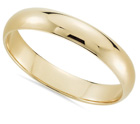 Thailand has a lot of wedding traditions, rituals, and rules. But it’s not always that all of them are incorporated in one wedding – the family just honors the main traditions and chooses a few of smaller and not obligatory ones. Also, Thais may have either a Buddhist religious ceremony or a civil one. And they know how to party all right! We’d like to share with you several important Thai wedding traditions. They will help you better understand the culture and lifestyle of Thailand.
Thailand has a lot of wedding traditions, rituals, and rules. But it’s not always that all of them are incorporated in one wedding – the family just honors the main traditions and chooses a few of smaller and not obligatory ones. Also, Thais may have either a Buddhist religious ceremony or a civil one. And they know how to party all right! We’d like to share with you several important Thai wedding traditions. They will help you better understand the culture and lifestyle of Thailand.
Religious or civil ceremony?
In Thailand, people get married using either a religious or civil ceremony. Usually, religious means Buddhist – sure, there are other religions in this country and the couple can choose their belief system, but Buddhism is the most popular. If the bride and groom don’t want a religious wedding ceremony, they are free to have a civil union.
Though, even Buddhist ceremonies aren’t overtly religious. The couple just has a so-called “merit gift” ceremony at the Buddhist temple with only closest family members and friends present. In general, they get a blessing from god and make a donation to the temple. Thai people take their marriage very seriously, especially after having a Buddhist ceremony.
Engagement
In Thai culture, the engagement process traditionally begins from the bride’s father giving his permission to wed. The bride and groom themselves aren’t directly involved in the engagement act. One of the groom’s closest friends goes to the bride’s father and negotiates with him.
He asks for the girl’s hand and discusses the amount of dowry or “sin sod”. The dowry is paid by the groom to the bride’s parents, but this money or gold jewelry (it is typical for many countries to invest in gold jewels) usually are then presented to the newlyweds at the wedding or help to pay for the wedding. The tradition of giving dowry is cute because it’s a symbolic expression of respect for the parents in the upbringing of a girl; they even sometimes say that they pay “for mother’s milk”.
By the way, it’s interesting that the groom doesn’t have to pay dowry if he’s marrying not for the first time. If his wife died or divorced, he isn’t expected to pay another sin sod to his new fiancee.
Morning wedding ceremony
The wedding begins rather early in the morning. Loud music from the bride’s house informs all the neighbors about the wedding. The groom and his relatives form a procession walking to the bride’s place, a very colorful and cheerful one. There are flags, candles, dancing, food, etc. The groom tries to arrive at the bride’s house at exactly 9:09 a.m. because it’s the lucky time for Thais. Buddhist monks are often present at the morning ceremony, they pray and bless the couple, who in return give them money and invite the monks to have lunch with them.
Main wedding ceremony
The main wedding ceremony starts in the afternoon. It is called “rod nam sang”. Some unity rituals are held to symbolically strengthen the couple’s bond: the bride and groom’s hands are joined with flowers and a sacred string, their hands are soaked in water together, they wear special headdresses joined together with a white thread, and so on. Their relatives and close friends witness these rituals and take part in some of them. For instance, they help soak the couple’s hands in water, wishing them good luck and happiness in marriage.
Wedding reception and party
In the evening, the wedding dinner is held. Everybody is fed and the entertaining continues. The usual number of wedding guests is around 100-300 people, but it’s hard to tell the exact number because it’s ok for the guests to bring uninvited family and friends with them. Everyone who attends the wedding reception is fed, no matter if he/she was invited and expected or not.
Thai wedding parties are usually very cheerful. People eat, drink, dance, and sing. Thais know how to have fun.
After the party, the newlyweds are blessed again by the elders in their family and sent off to spend the wedding night together. Afterwards, they have a honeymoon or just spend some time together.

